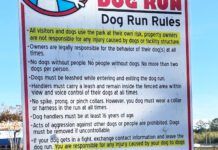I received an email from a reader the other day. His 12-year-old German Shepherd has just received a diagnosis of adenocarcinoma of the anal sacs. The dog received surgery, and now the owner and his wife are being presented with a number of further treatment options. The husband wrote, “We are continuing with traditional medical treatment but are looking to supplement his treatment with potential complementary and alternative medicine options – or even ‘high tech’ traditional medical options such as monoclonal antibody or immunotherapy.” They wanted to know, did I have any further suggestions?
Ah, I wish, I wish, I wish I had a great answer for them – a prescription for the most effective treatment, a phone number for the specialist, a link to a study being conducted on that specific type of canine cancer. Why isn’t there a roadmap for treating cancer? It seems like there ought to be a database, with every type of cancer for every companion animal species, with lists of what therapies have been tried and the success rate of each, with the side effects listed… And then you could just select the course of treatment that’s had the best results with the least side effects – and feel good about your choices.
But in my experience with cancer, you almost never feel great about the choices that you make. Even when treatment is successful, most people I’ve known with cancer, and most pet owners who have had their pets treated for cancer, have been left with niggling doubts. When the patient died, their loved ones all second-guessed their treatment decisions: should we have gone with this approach instead of that one, should we have declined treatment altogether and focused on quality of life instead of making the patient sick with chemo or radiation, should we have started the nutritional and complementary treatments sooner?
And even when the patient lives, whether it’s for a few weeks, months, or even years past the original prognosis, I’ve heard people wonder: Was that surgery really necessary? Could I have stopped chemo sooner with the same result? The patient had such side effects from the radiation; is the life she’s leading now worth all the suffering?
Another awful question: Is there a study going on somewhere that is testing a treatment for my loved-one’s cancer? Have I not looked hard enough for someone, somewhere in this country, who may have found the treatment that could save my beloved?
For me, a person who likes clear-cut answers, the lack of clarity and the second-guessing that one does, is almost as torturous as being stricken with cancer oneself.
All I could do for my reader is to encourage him and his wife, by saying that whatever they are able to do for their dog is a lot; it’s a hard thing to deal with, especially with an older dog. I also told them to check out the book, The Dog Cancer Survival Guide. It contains a lot of basic and encouraging information.
We did a series on cancer in WDJ a number of years ago, but they contain good information. Here is a link to an article that contains links to the entire series in the first few paragraphs:
https://www.whole-dog-journal.com/health/canine-cancer-therapy-update/
One article I would strongly recommend is: https://www.whole-dog-journal.com/health/anti-cancer-diets-for-dogs/
And last, I told them, best of luck, and let us know how you and your dog are doing as you journey through the unfamiliar land of cancer.
What advice would you give someone who was facing cancer with their dog?





